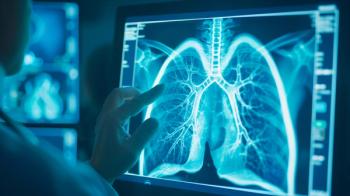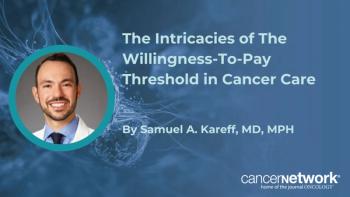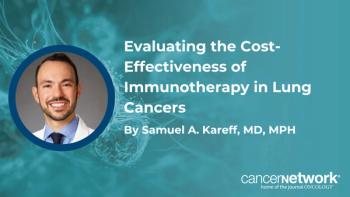
Can Exercise Offer Benefit in Advanced Lung Cancer Patients?
Many lung cancer patients may be unaware of the potential benefits of exercise.
Good adherence to a regular exercise program can improve levels of fatigue and functional well-being among patients with advanced inoperable lung cancer, according to a new study. In spite of that, a second study shows that many lung cancer patients are unaware of the potential benefits of exercise.
“Exercise benefits everyone, not just those who are well, and too few people are aware that gentle aerobic exercise and strength training should be as much a part of treating advanced lung cancer as antitumor therapy,” said Quan Tran, MBBS, of St. Stephen’s Hospital in Urraween, Australia, according to a
The mean age of the participants in the survey was 63.9 years, and 88.4% had advanced disease. All patients had undergone at least one cycle of chemotherapy. Twenty-two percent of patients achieved the level of physical activity recommended by the World Health Organization, and 25% were considered to be active based on criteria in the Godin-Shephard Leisure-Time Physical Activity Questionnaire.
The most common barrier to exercise participation cited was fatigue (68% of patients), followed by shortness of breath (61%), low mood (58%), no motivation (56%), pain (54%), and side effects of cancer treatment (54%). More than half the participants (54%) reported a lack of awareness of the benefits of exercise, while those who were non-active had less social support (P ≤ .05).
The survey respondents also answered questions about what type of program would be most helpful, and they supported the use of education, group exercise classes, and other types of support available at the place they received regular cancer treatment. “They weren’t interested in competitions and incentives, but they did feel that being with others in a similar situation would motivate them to overcome their barriers to exercise,” Tran said.
In the other study, presented by Joachim Wiskemann, PhD, of Heidelberg University Hospital in Germany, the investigators randomized 227 patients with advanced inoperable lung cancer to either 24 weeks of partly supervised resistance and aerobic training 3 times per week along with weekly care management phone calls, or to calls alone.
In the full cohort, the exercise program had no significant effect on well-being and general fatigue at 12 weeks; however, patients with adherence rates to the exercise program of greater than 70% (46 patients) did achieve significant benefits with regard to both fatigue (improvement of 10% vs 2%; P = .01) and functional well-being (improvement of 11% vs 3%; P = .03). The same was true for a measure of overall physical and functional well-being (improvement of 8% vs 4%; P = .04).
Wiskemann estimated that more than half of advanced lung cancer patients are capable and willing to exercise. “In the past, we have assumed that only the healthiest and fittest patients with cancer could exercise, but our study has shown this is not true and that those with advanced disease can benefit too,” he said. “We must now be flexible in the way we offer exercise, so patients can do it wherever they are most comfortable-at home, in a class at the hospital, or in a gym.”
“Scientifically, we need to understand how exercise is having these effects and, clinically, we need to develop ways to triage patients to the type of exercise most likely to help them, based on what they feel will have the greatest impact on their quality of life,” he said.
Newsletter
Stay up to date on recent advances in the multidisciplinary approach to cancer.
Related Content




Evaluating the Cost-Effectiveness of Immunotherapy in Lung Cancers











































